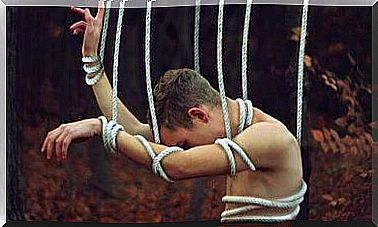Learn To Understand Your Children

Do you have problems with your children? It is not always easy to understand your children, since they have a very particular way of thinking, which, contrary to how we thought not long ago, has nothing to do with that of a “miniature adult”. In addition, for many the world of childhood and adolescence is already far away and we have forgotten some of the sensations that we felt then and that now could be the key to understanding them a little more.
However, we must not forget that our little ones have the whole world ahead of them. Our children deserve to be happy and to grow up in an environment of adequate understanding to train as people. That is why we offer you below some interesting keys to better understand childhood.
Keys to understanding your children: the baby
Understanding a baby is probably one of the most complex tasks of all childhood. The newborn is totally unaware of the world around him, so his dependence on his parents to begin to understand what is happening is total and absolute.

During this stage, the child begins to develop physically and mentally. He does not control time or space, but he is laying the foundations of what his future life will be. For him everything is new, from smells to colors. In this phase of their growth it is very important to properly stimulate the child, reinforcing the desired behaviors. Giving signs of affection in the form of contact such as hugs and kisses will also be an indispensable task.
In addition, we must offer you security, because your self-esteem will depend on it. Of course, you have to attend to him when it is a need. If we comply with all the demands of our child, we will be creating a very negative and almost dictatorial behavior in the little one.
Understand your children: the infant
To understand your children in their infant stage, which ranges from 3 to 6 years old, it must be borne in mind that the little ones face an enormous phase of discovery and growth. He begins to develop awareness of everything around him and of himself.
The little one will tend to experiment with everything. We should not deny him this activity, although it is not a bad idea to guide him to avoid greater evils. He will want to test all his limits, so it is important to be very attentive to his actions and behaviors.
The moment of imitation has come, so it is necessary for parents to become an example for the child if we want to avoid inappropriate behavior. They already practice symbolic play, assigning roles according to what they observe in adults.

It is important to teach discipline in a reasonable and understandable way for the child. Positive reinforcements at this age are especially important, as well as their assumption of small responsibilities. Show her support when she earns it, and it will guide her in how to act.
Understanding your children: primary
Your little one is getting older. You are already feeling independent and looking for socialization. They understand concepts such as belonging and ask everything, so they need guidance and example.
We must understand that during the primary stage the acceptance and opinions of others are very important for the child. They may not want to differentiate themselves from their social group, but they will follow the values that you are instilling in them, although their friends will have a lot of weight in their way of acting.
In elementary school we have to take great care of their self-esteem. You must learn social skills, so it is necessary to answer your questions patiently and naturally. Discipline must be positive, based on reinforcements, leaving autonomy and space for them to develop correctly.
Understanding your children: adolescence
If you think that the path up to now has been complex, arm yourself with patience because the most complicated stage is coming. Preadolescence and adolescence are really difficult times for parent-child relationships. They range from 11 years old to 17 or 18.
Acceptance, group opinion, socialization, feelings of shame, rebellion and the first disappointments begin at a stage in which the changes are enormous and the child needs to be able to adequately resolve the contradictions from which they are going to start. to be aware. The stories are no longer valid, not everything is black or white but there are a lot of grays.

In adolescence they realize that love does not always return love, that their parents have defects just like them, that it is possible to question them as models and even improvable in some aspects, that the people they consider good also have their sins and temptations. At this stage they understand that the brave person is not the one who is not afraid, but the one who decides to confront him and that they must learn to tolerate the dissonance that being someone causes and sometimes wanting to be someone else.
It should not be forgotten that adolescents live a time of transition in which they are not children, but neither are they adults. Therefore, we have to be very understanding. In this way we will improve their self-esteem, their empathy, their assertiveness, their responsibility and their autonomy. Now is the time to be really patient.
We must show them that they are still as important as we have told them, but that there are places as parents that we do not reach and others that we do not want to reach because it is up to him or her to start making the final decisions. Reinforcement and discipline should be very positive to instill in them values of respect, but not fear in adolescence.
Remember that they are looking for their own identity. Great physical and mental changes occur in them. It is normal for them to question and ask themselves uncomfortable questions. Everything is part of a natural process, so we have to be very understanding and patient.
You will observe that understanding your children is mainly a work of patience, affection, understanding, perseverance and certain knowledge that will help you raise children with values and self-esteem capable of exercising their autonomy in an adequate way.









